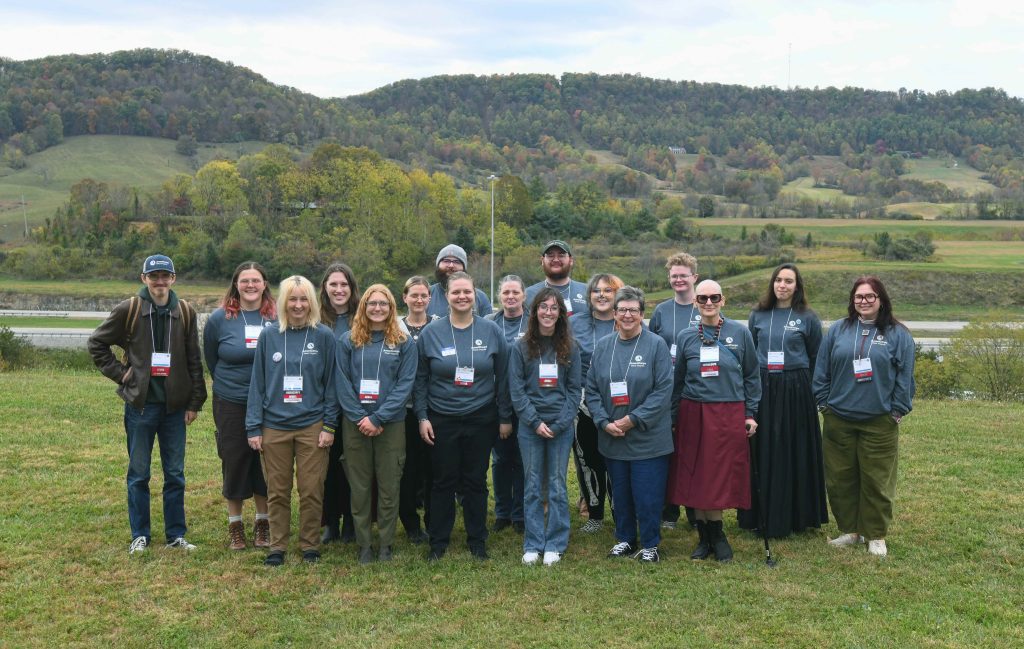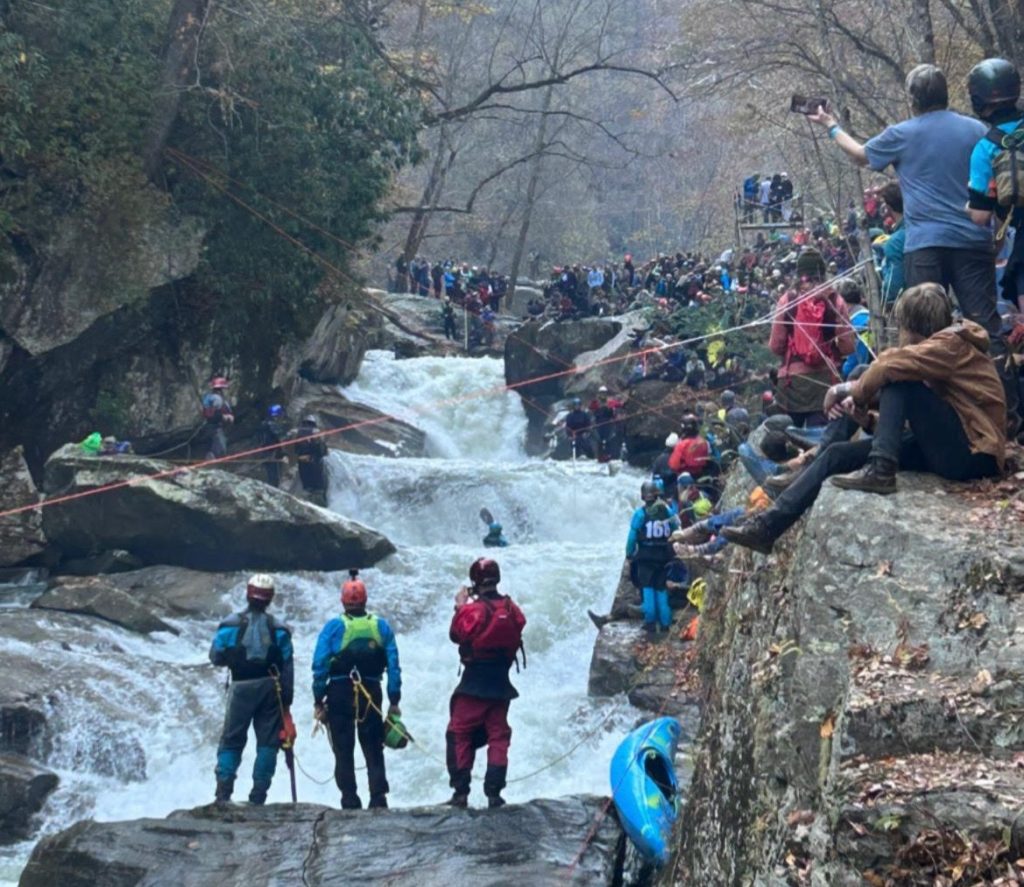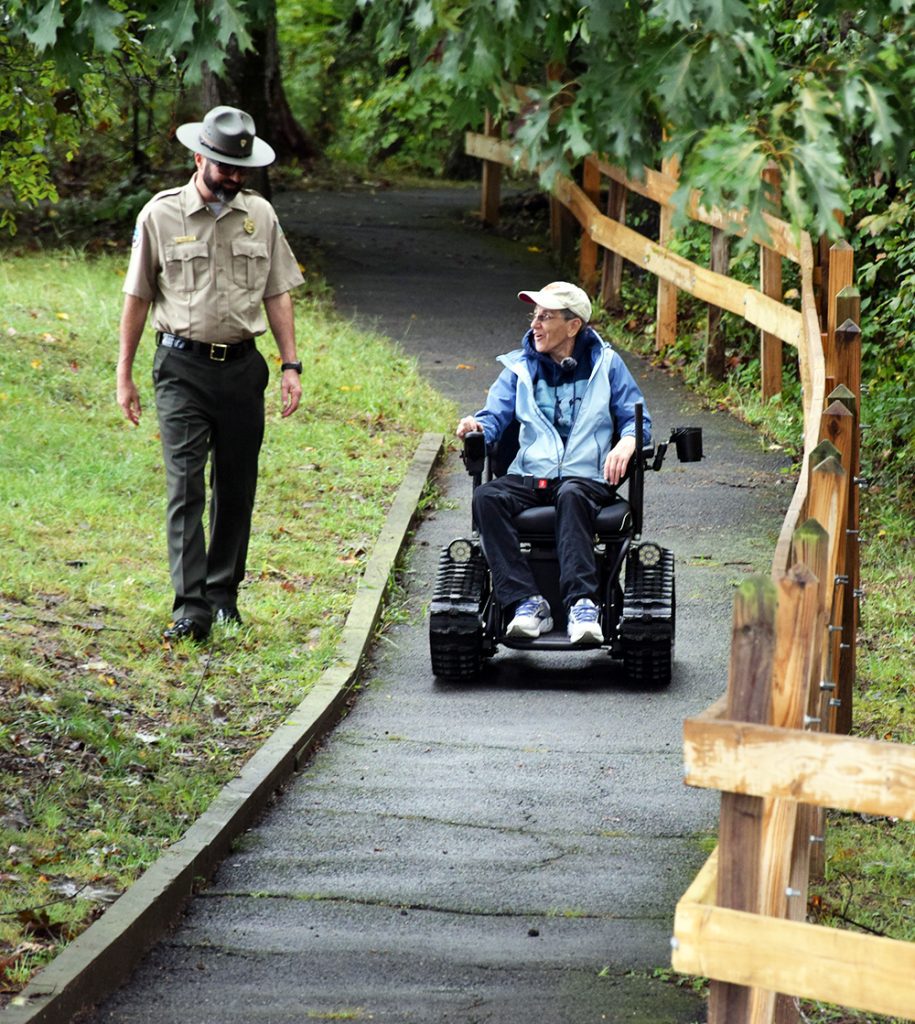Written by Contributing Writers
Contributing Writers
‘Living the AmeriCorps Dream’?
Hundreds of projects throughout Appalachia received support from AmeriCorps national service members this year before the agency became the target of the so-called Department of Government Efficiency in April. The White House cancelled $400 million in AmeriCorps grants unilaterally, forcing some programs to immediately wrap for the year. Some states later had funding restored after a lawsuit led by attorneys general, and the next cycle of grants from the program is expected to continue this year.
Whitewater Kayaking Race to Return with a Course Transformed by Hurricane Helene
Paddlers will soon return to the whitewater river of Western North Carolina for the world’s largest extreme kayaking event. After the destruction of Hurricane Helene sent the renowned Green Race on a yearlong hiatus, the paddling community is gearing up for the race’s 30th year on Nov. 1, which will look much different with the Green River’s course reshaped by the storm.
Appalachia’s Funkiest Fungi
Don’t miss 10 of Appalachia’s funkiest fungi! From Bleeding Tooth Fungus to Dead Man’s Fingers, we’ve selected the weirdest of the weird fungi. Hopefully you can find and appreciate some of these beautiful and fascinating local residents in your neck of the woods.
Protected Paths: Trails Through Public Lands
This series features lesser-known trails in Appalachia’s public lands. They show the beauty and significance of hiking on public lands.
People vs. Pipelines
Patricia Smarsh and Jeffrey Gilliam’s land is threatened by the Ridgeline Pipeline, a proposed methane gas project from Enbridge Inc.
A Call to Protect the Hellbender, Appalachia’s Largest Salamander
The Eastern hellbender is eligible to receive federal protection under the Endangered Species Act. In December 2024, the U.S. Fish and Wildlife Service issued a proposal to classify the hellbender as endangered.
Facing a Funding Fight
We take a look at some of Trump’s federal funding proposals for Fiscal Year 2026 that have a disproportionate impact on the air, land, water and local economies of Appalachia.
State Park All-Terrain Wheelchair Program; Fire Ants in South Virginia
Two Across Appalachia stories from Virginia cover six Virginia parks adding all-terrain wheelchairs and invasive fire ants spreading in the state.
Debris Removal in Waterways Causes Concern
Cleanup of debris after Hurricane Helene in rivers has become an unanticipated point of tension in North Carolina and Tennessee.
Miners and Advocates Push for Better Black Lung Benefits and Protections
On a rainy May afternoon, nearly 20 members of the Southwest Virginia Black Lung Association Chapter II gathered in Big Stone Gap to discuss the black lung crisis, which has been rising among Appalachia’s coal miners, often at younger ages.











